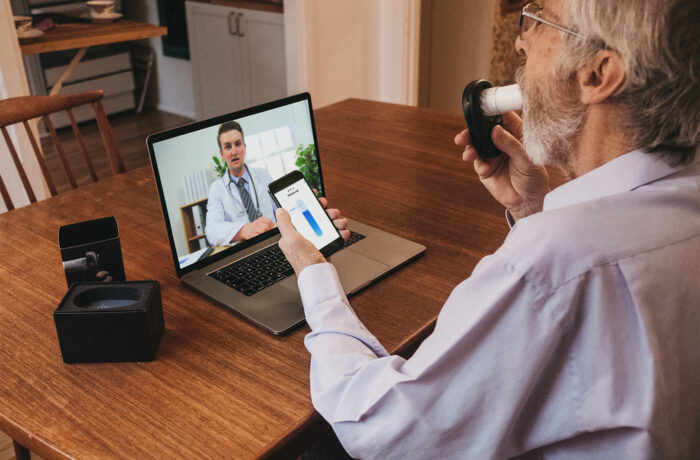European space agency awards contract to develop digitally connected healthcare platform
Posted on
Spirit Digital, a graduate of the East Midlands AHSN Digital Health Accelerator, sister to the DigitalHealth.London Accelerator, has been awarded a European Space Agency (ESA) Business Applications and Space Solutions contract and funding. The project will deliver real-time remote monitoring for patients with long-term conditions, augmented with satellite air-quality data to enhance care provision and patient self-management options.
CliniTouch Vie II will provide patients and clinicians with real-time visibility through an enhanced system that provides advanced warning of when a patient’s condition is likely to deteriorate by vital signs monitoring – enabling prompt pre-emptive interventions for the patient and the healthcare practitioner. Providing air quality data will give patients real time information empowering them to help make decisions about how they manage their day.
CliniTouch Vie is an MHRA-approved medical device that proactively improves patient outcomes by reducing hospital admissions, enhancing case management capacity, preventing acute exacerbations, improving efficiency and collaboration and promoting patient self-management. In its Leicester COPD service, the digital platform has delivered a 67% reduction in emergency admissions amongst high-risk patients, working in parallel with health coaching and specialist nurse interventions.
With this new ESA initiative, Spirit Digital will lead a project team comprising air quality expert, EarthSense; not-for-profit innovation and technology network, Satellite Applications Catapult; and NHS support organisation Arden & GEM Commissioning Support Unit, to add Earth Observation data into CliniTouch Vie for improved healthcare decisions.
This data includes:
- Data from the Copernicus Atmosphere Monitoring Service (CAMS) – used for a range of species including NO2, O3, PM5 and PM10. These inputs will be critical to informing surface concentrations of key pollutants.
- Direct L3 NO2 data from Sentinel 5P to enhance regional import estimates within the air quality modelling.
- Meteorological data (EUMETSAT via ECMWF) contributing vital wind vector information to enable pollution dispersion to be accurately calculated.
- A satellite-enhanced digital elevation model is used to provide surface feature information (including buildings and trees).
In addition, GNSS data is used for location tracking for both patients and mobile air quality sensors and provides tailored position-based information on pollution concentrations.
Chris Barker, CEO, Spirit Health Group, said, “In the UK alone, 1.2 million people are diagnosed with COPD, with in excess of 140,000 unscheduled hospital admissions and 30,000 deaths per year. We know that poor air quality contributes to morbidity and mortality, and is estimated to have cost £157 million in health and social care in 2017. Yet, we can change this! By providing an enhanced system that will offer advanced warning of potential condition deterioration alongside pre-emptive intervention data, we can shift the focus from treatment to prevention.”


